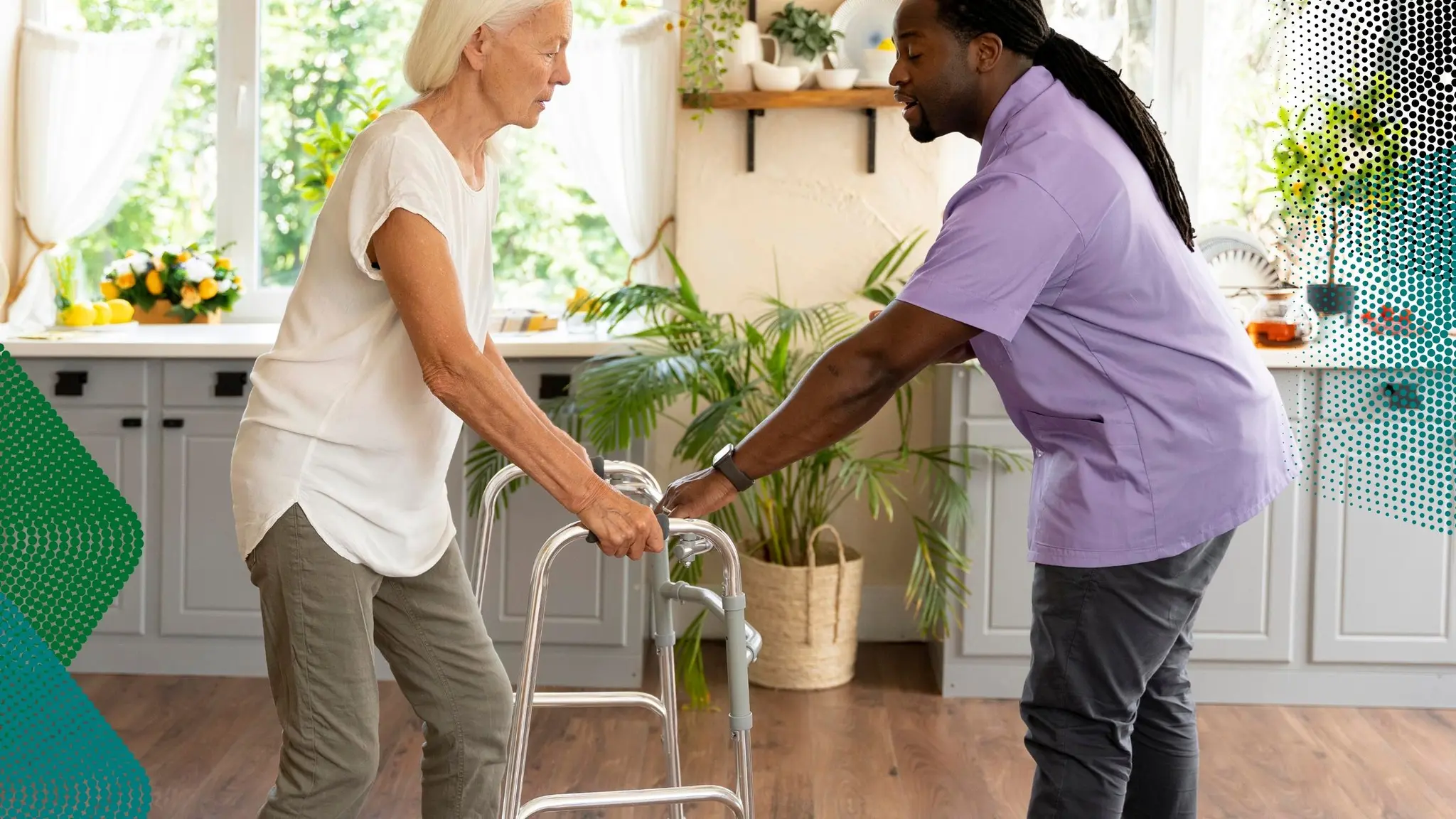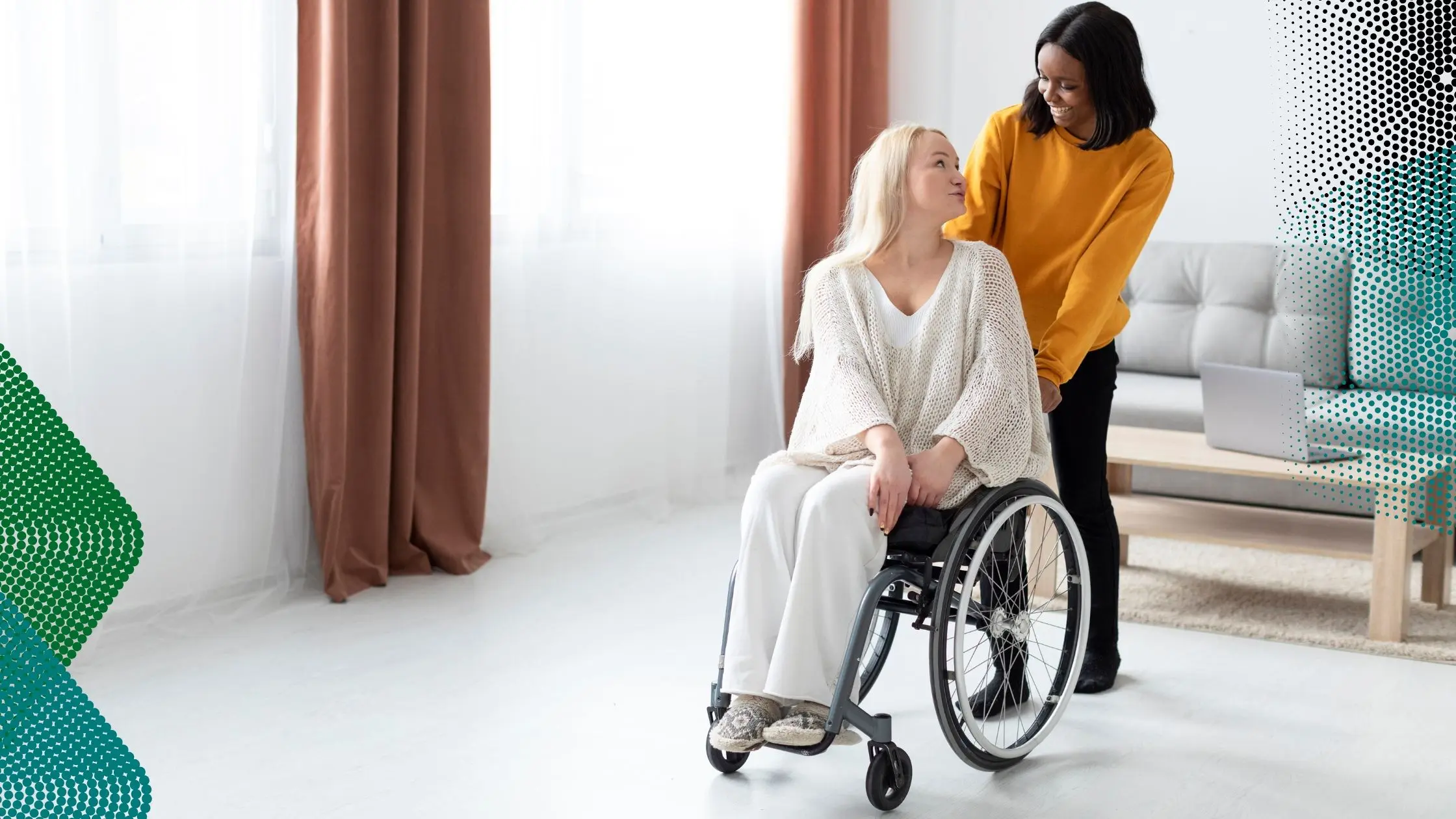The Hidden Gems of Senior Home Care: What Every Family Needs to Know
Top U.S. Home Care Services for Seniors: Costs, Benefits & How to Choose.

Christian Joshua
Published in Assisted Living
Home care services for elderly individuals encompass a range of support options designed to assist seniors in maintaining their independence while receiving care in the comfort of their own homes. These services can include assistance with daily activities, medical care, and companionship, tailored to meet the unique needs of each individual.
The significance of home care lies in its ability to promote autonomy and enhance the quality of life for seniors. By receiving care at home, elderly individuals can remain in familiar surroundings, which can positively impact their emotional well-being and overall health. Moreover, home care services can be more cost-effective compared to institutional care, providing a practical solution for many families.
Want to have access to our next publication right into your inbox? Sign Up To Our Newsletter Today
Get Periodic Updates Straight To Your Inbox. Sign Up To Our Newsletter Today.
The demand for home care services in the U.S. is growing rapidly. According to industry reports, the U.S. home care market is projected to reach $225 billion by 2025, reflecting increased demand for non-hospital care solutions. This surge is driven by an aging population and a preference among seniors to age in place.
Let us explore the various types of home care services available, their benefits, and how to choose the right provider to ensure your loved ones receive the best possible care at home.
3 Types of Home Care Services for Elderly
Non-Medical Home Care
Non-medical home care provides essential support for seniors who wish to maintain independence while residing in their own homes. These services focus on assisting with daily activities such as bathing, dressing, meal preparation, light housekeeping, and transportation. Additionally, companionship is a vital component, offering social interaction to combat loneliness and promote emotional well-being. This type of care is particularly beneficial for elderly individuals who do not require medical attention but need assistance with routine tasks to ensure safety and comfort. Non-medical home care is customizable, ranging from a few hours a week to full-time support, depending on the individual's needs.
Read More: Florida Law Allows Residents to Install Cameras in Nursing Home and Assisted Living Rooms
Home Health Care
Home health care involves medical services delivered at home by licensed healthcare professionals. This includes skilled nursing care, physical therapy, occupational therapy, and speech-language pathology services. Home health care is typically prescribed by a physician for individuals recovering from illness, surgery, or managing chronic conditions. Services may encompass wound care, medication administration, monitoring of vital signs, and education on disease management. Medicare and Medicaid often cover eligible home health services, provided certain criteria are met, such as being homebound and requiring skilled care.
Specialized Home Care Services
Specialized home care services cater to seniors with specific health conditions or advanced care needs. This includes:
- Alzheimer’s and Dementia Care: Tailored support focusing on safety, cognitive stimulation, and daily routine management for individuals with memory impairments.
- Palliative and Hospice Care: Comfort-focused care aimed at relieving symptoms and improving quality of life for those with serious or terminal illnesses.
- Respite Care: Temporary relief for primary caregivers, allowing them time to rest while ensuring the senior continues to receive appropriate care.
3 Benefits of Home Care Services for Elderly
Enhancing Quality of Life
Home care services for elderly individuals offer a personalized approach that significantly enhances their quality of life. By receiving care in the comfort of their own homes, seniors can maintain their daily routines and stay connected with their communities. This familiarity promotes emotional well-being and reduces the stress often associated with transitioning to institutional care settings. Moreover, home care allows for one-on-one attention, ensuring that care plans are tailored to meet the unique needs of each individual. This personalized care fosters a sense of dignity and respect, which is crucial for the overall happiness and satisfaction of elderly individuals.
Cost-Effectiveness
When compared to assisted living facilities or nursing homes, home care services for elderly individuals can be a more cost-effective solution. Families have the flexibility to choose the level of care required, whether it's a few hours a day or full-time assistance, allowing them to manage expenses more effectively. Additionally, by receiving care at home, seniors may avoid the high costs associated with residential care facilities. This financial flexibility makes home care an attractive option for many families seeking quality care for their loved ones.
Support for Family Caregivers
Home care services not only benefit the elderly but also provide essential support for family caregivers. Caring for an aging loved one can be physically and emotionally demanding. By enlisting professional home care services, family members can receive respite, reducing caregiver burnout and stress. This support ensures that caregivers can maintain their well-being while their loved ones continue to receive high-quality care. Furthermore, professional caregivers can offer guidance and education to family members, enhancing the overall caregiving experience.
How To Choose The Right Home Care Provider
Before selecting a home care provider, it's essential to evaluate your loved one's specific needs. This involves assessing their physical health, cognitive abilities, emotional well-being, and daily living activities. Consider whether they require assistance with tasks like bathing, dressing, meal preparation, or medication management. Additionally, evaluate their need for companionship and social interaction.
Engaging healthcare professionals, such as geriatric care managers or primary care physicians, can provide valuable insights into the level of care required. These professionals can conduct comprehensive assessments to determine the appropriate services needed to ensure safety and quality of life for your loved one.
Researching Providers
Once you've identified the necessary care level, begin researching potential home care providers. Start by seeking recommendations from healthcare professionals, friends, or family members who have experience with home care services. Online directories and review platforms can also offer insights into local agencies' reputations.
When evaluating providers, consider the following:
- Licensing and Accreditation: Ensure the agency is licensed by the state and holds any necessary certifications.
- Caregiver Qualifications: Inquire about the training, background checks, and experience of the caregivers.
- Services Offered: Confirm that the agency provides the specific services your loved one requires.
- Availability: Assess whether the agency can accommodate your scheduling needs, including emergency coverage.
- Client Satisfaction: Look for testimonials or reviews from current or former clients to gauge satisfaction levels.
- Conduct interviews with potential agencies to ask questions and clarify any concerns. This step is crucial to ensure compatibility and trust between the caregiver and your loved one.
Understanding Costs and Insurance Coverage
Home care costs can vary based on the type and frequency of services required. On average, non-medical home care services range from $20 to $40 per hour, while skilled nursing care can cost between $50 and $130 per hour, depending on the complexity of care needed.
Read More: Florida Law Allows Residents to Install Cameras in Nursing Home and Assisted Living Rooms
It's important to understand what expenses are covered by insurance and what will be out-of-pocket. Medicare may cover certain home health services if specific criteria are met, such as the need for skilled nursing care and being homebound. Medicaid coverage varies by state and may include both medical and non-medical home care services.
Long-term care insurance policies can also help offset costs, depending on the coverage terms. Review your loved one's insurance policies and consult with the providers to understand the extent of coverage and any limitations.
By thoroughly assessing care needs, researching providers, and understanding financial aspects, you can make informed decisions to ensure your loved one receives quality home care services tailored to their needs.
Top 3 Home Care Agencies in the U.S.
When considering home care services for elderly individuals, it's essential to choose a reputable provider that aligns with your loved one's needs. Here are three prominent home care agencies in the U.S.:
- Home Instead: As the largest home care franchise network, Home Instead operates over 1,200 locations worldwide, serving more than 100,000 clients and families. They offer a wide range of services, including personal care, nurse-directed care, hospice support, and more, depending on the location. All caregivers are carefully screened, background checked, and insured. Home Instead holds an "A+" rating from the Better Business Bureau (BBB).
- Visiting Angels: With over 600 franchised locations nationwide, Visiting Angels has been providing in-home care to elderly adults for more than 20 years. They offer non-medical services like Alzheimer's and dementia care, companionship, light housekeeping, and more. All agencies are licensed, bonded, and insured, and caregivers undergo comprehensive background and criminal history checks. Visiting Angels also holds an "A+" rating from the BBB.
- Right at Home: Founded in 1995, Right at Home offers a wide range of senior care services through its 600+ franchise offices in the United States and other countries. They provide both non-medical care and skilled nursing services, depending on the location. Every caregiver undergoes a criminal background check and is bonded/insured. Right at Home has a stellar reputation, including an "A+" rating from the BBB.
Accreditations and Ratings
When evaluating home care agencies, consider their accreditations and ratings:
- Better Business Bureau (BBB): The BBB assigns ratings from A+ (highest) to F (lowest) based on factors like business practices and customer complaints. An "A+" rating indicates a high level of trustworthiness and customer satisfaction.
- Centers for Medicare & Medicaid Services (CMS) Star Ratings: CMS provides star ratings for home health agencies based on quality measures and patient surveys. These ratings help consumers compare the performance of different agencies. You can find these ratings on the CMS Care Compare website.
Preparing for Home Care Services for Elderly
Before initiating home care services for elderly individuals, it's crucial to evaluate the living environment to ensure safety and accessibility. A comprehensive home safety assessment can identify potential hazards and recommend modifications to prevent accidents. Key areas to focus on include:
- Fall Prevention: Install grab bars in bathrooms, secure loose rugs, and ensure adequate lighting throughout the home.
- Mobility Enhancements: Consider adding ramps for wheelchair access and widening doorways to accommodate mobility aids.
- Emergency Preparedness: Equip the home with smoke detectors, carbon monoxide alarms, and easily accessible emergency contact information.
Engaging professionals, such as occupational therapists, can provide valuable insights into necessary home modifications. These experts assess the individual's needs and recommend changes to promote independence and safety. For a detailed guide on home safety assessments, refer to the National Council on Aging's resources.
Establishing a Care Plan
Creating a personalized care plan is essential for delivering effective home care services to elderly individuals. This plan should outline the individual's health status, daily routines, medication schedules, and emergency protocols. Key components include:
- Health Information: Document medical conditions, allergies, and current treatments.
- Daily Activities: Detail assistance required for tasks like bathing, dressing, and meal preparation.
- Emergency Contacts: List family members, healthcare providers, and emergency services.
Regularly reviewing and updating the care plan ensures it remains aligned with the individual's evolving needs. Involving the elderly person in the planning process promotes autonomy and respect for their preferences. For guidance on creating comprehensive care plans, consult the Centers for Disease Control and Prevention's caregiving guidelines.
Frequently Asked Questions About Home Care Services for Elderly
What services are typically included in home care for the elderly?
Home care services for elderly individuals often encompass assistance with activities of daily living (ADLs) such as bathing, dressing, meal preparation, and medication reminders. Additional services may include light housekeeping, transportation, companionship, and specialized care for conditions like Alzheimer's or Parkinson's disease. The specific services provided can vary based on the individual's needs and the home care agency's offerings.
How do I choose the right home care provider?
Selecting the appropriate home care provider involves assessing the specific needs of your loved one, researching potential agencies, and conducting interviews. Key factors to consider include the agency's licensing and accreditation, caregiver qualifications, range of services offered, and client reviews. It's also beneficial to request a detailed care plan and understand the agency's policies on caregiver supervision and emergency procedures.
Are home care services covered by insurance?
Coverage for home care services depends on the type of care required and the individual's insurance plan. Medicare may cover certain home health services if specific criteria are met, such as the need for skilled nursing care and being homebound. Medicaid coverage varies by state and may include both medical and non-medical home care services. Long-term care insurance policies can also help offset costs, depending on the coverage terms.
Can home care services be customized?
Yes, home care services are typically tailored to meet the unique needs of each individual. Care plans are developed based on comprehensive assessments and can be adjusted as the individual's needs evolve. This personalized approach ensures that seniors receive appropriate and effective care in the comfort of their own homes.
What is the difference between home care and home health care?
Home care generally refers to non-medical assistance with daily activities, while home health care involves medical services provided by licensed healthcare professionals. Home health care services may include skilled nursing, physical therapy, and medical monitoring, often prescribed by a physician for individuals recovering from illness or surgery.
Conclusion
Home care services for elderly individuals offer a compassionate and practical solution for aging in place. By receiving personalized care in the comfort of their own homes, seniors can maintain independence, dignity, and a higher quality of life. This approach not only benefits the elderly but also provides peace of mind to family members, knowing their loved ones are in capable hands.
The flexibility of home care services allows for tailored care plans that adapt to the evolving needs of seniors. Whether it's assistance with daily activities, medical care, or companionship, these services are designed to support the unique requirements of each individual. Moreover, home care can be a cost-effective alternative to institutional care, offering financial relief to families while ensuring comprehensive support for their loved ones.
Want to have access to our next publication right into your inbox? Sign Up-To Our Newsletter Today
As the demand for home care services continues to grow in the U.S., it's essential for families to explore available resources and make informed decisions. Utilizing tools like the Eldercare Locator can help identify reputable providers and programs tailored to specific needs. By embracing home care, families can ensure their elderly members age gracefully, safely, and comfortably in their own homes.

Assisted Living
Independent Living Needs an Aging-in-Place Makeover—Here’s Why!
Learn how independent living communities can deliv...

Assisted Living
Residential Assisted Living: Everything You Need to Know About Senior Housing and Care
Residential Assisted Living: Costs, Benefits & Top...

Assisted Living
The Hidden Gems of Senior Home Care: What Every Family Needs to Know
Top U.S. Home Care Services for Seniors: Costs, Be...